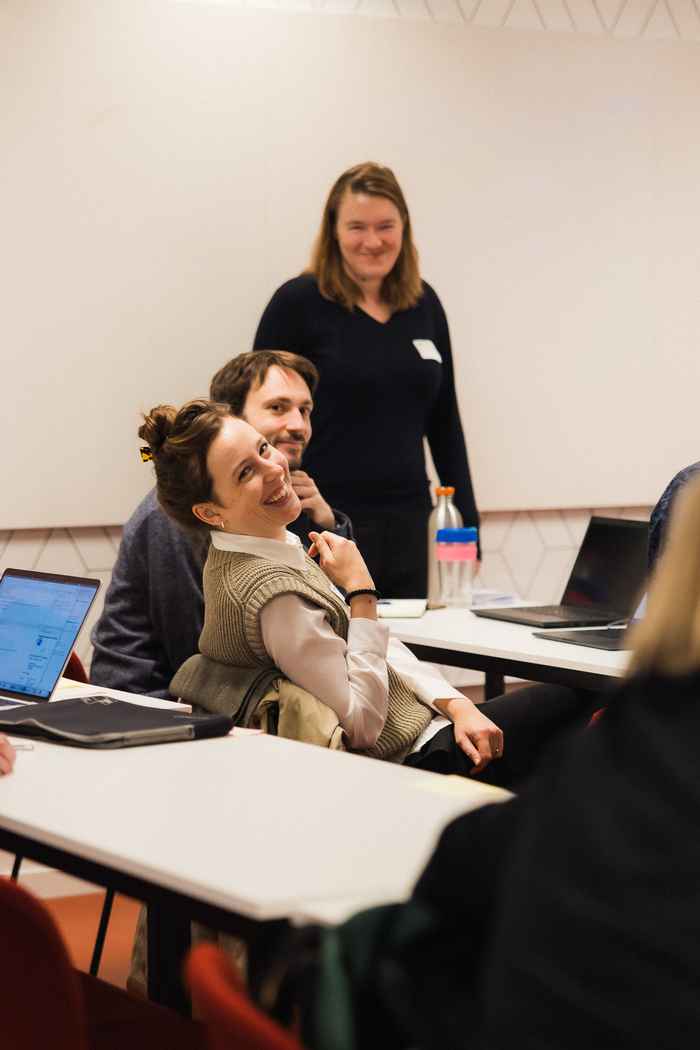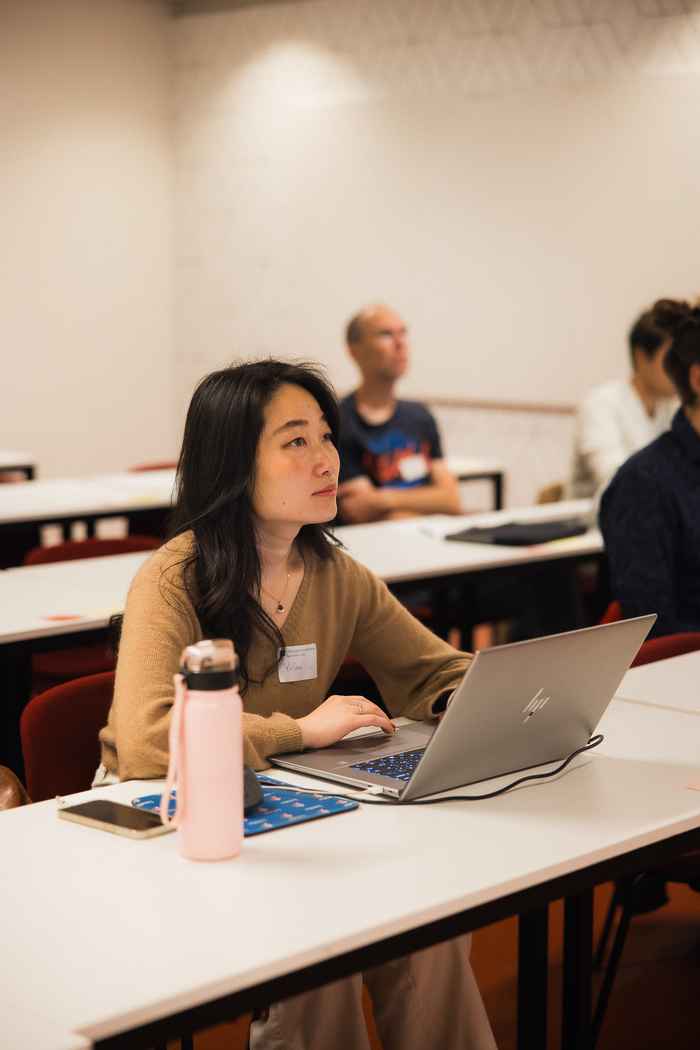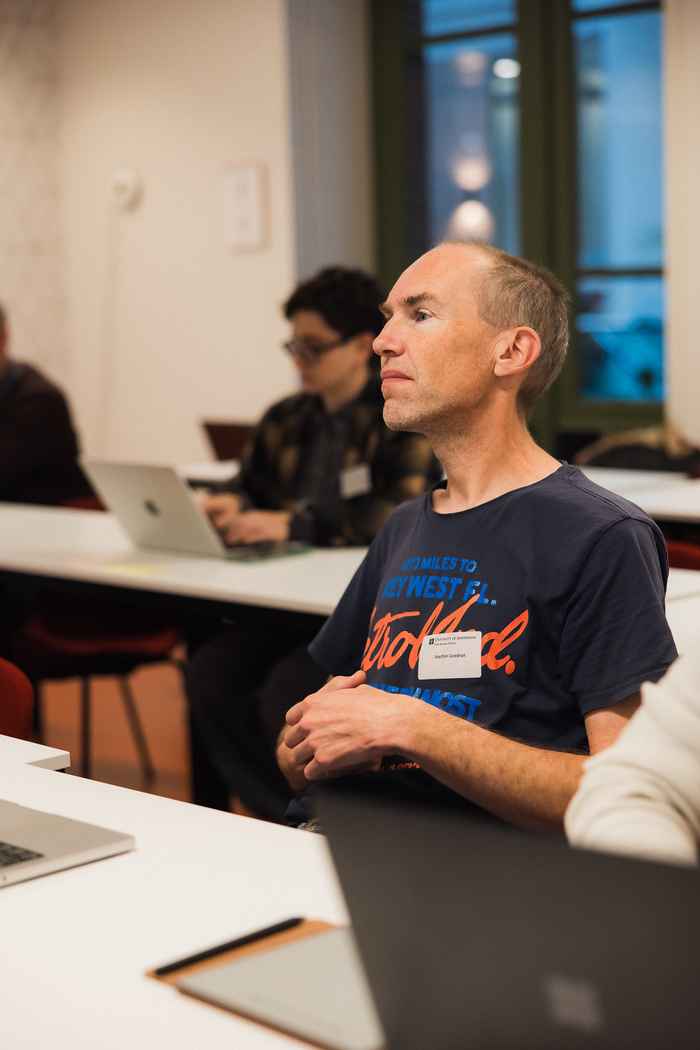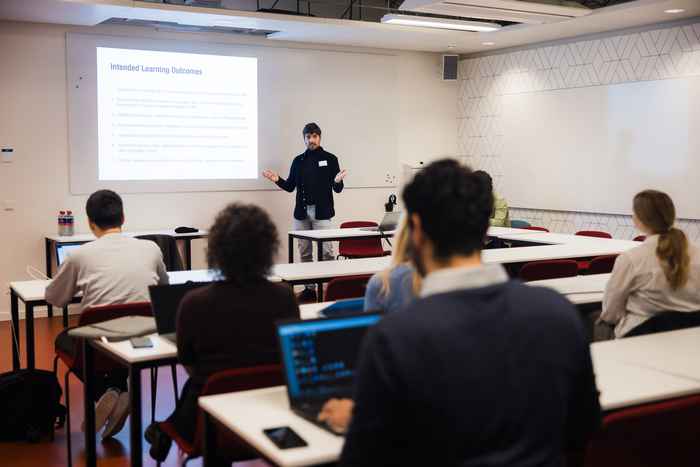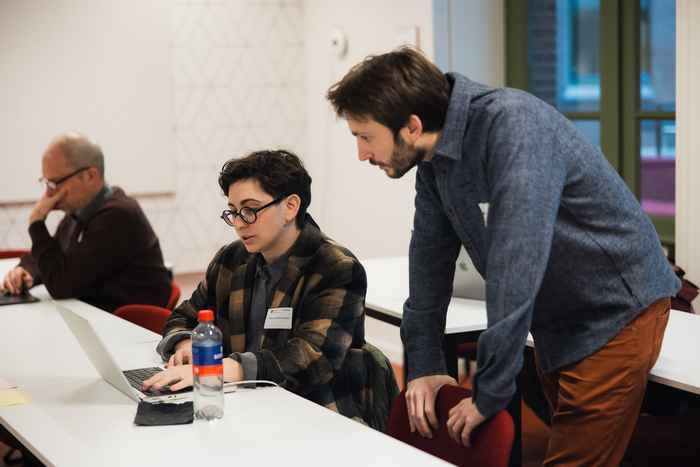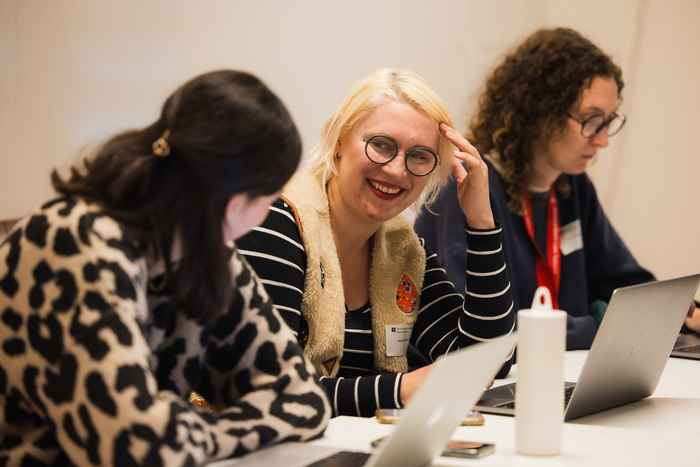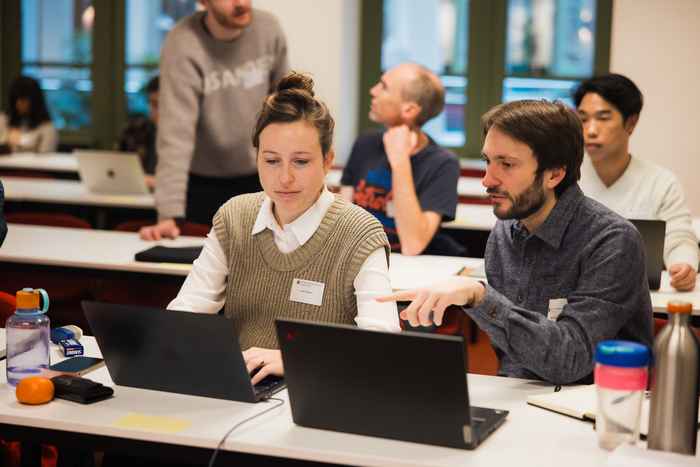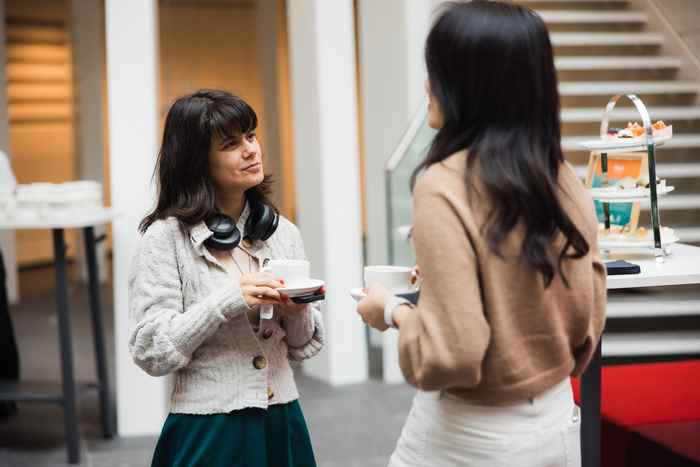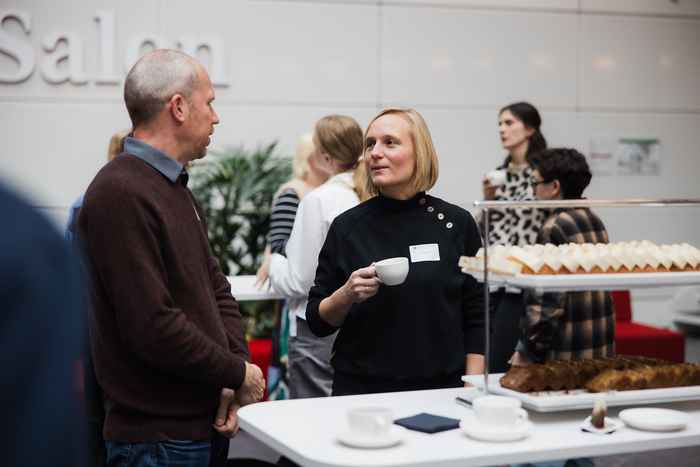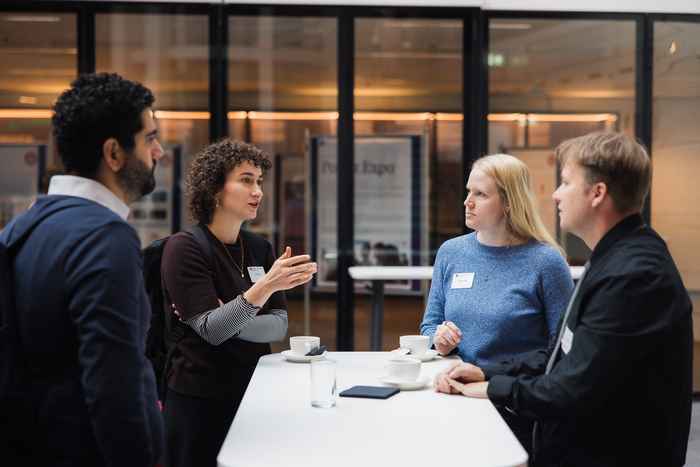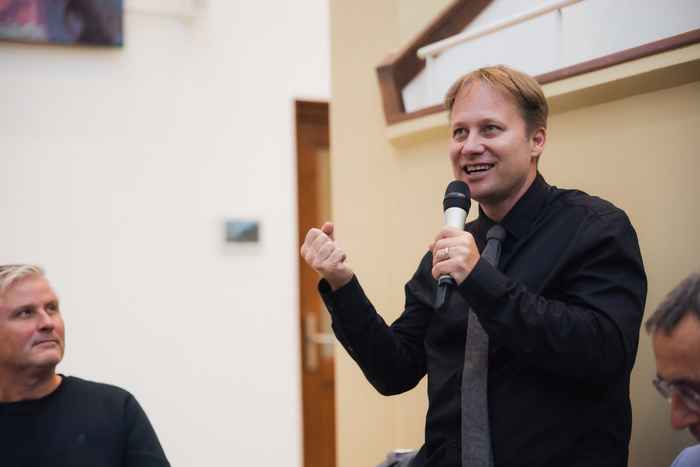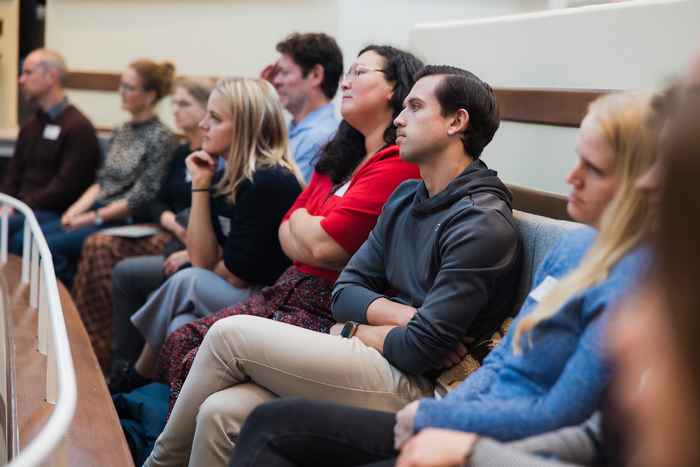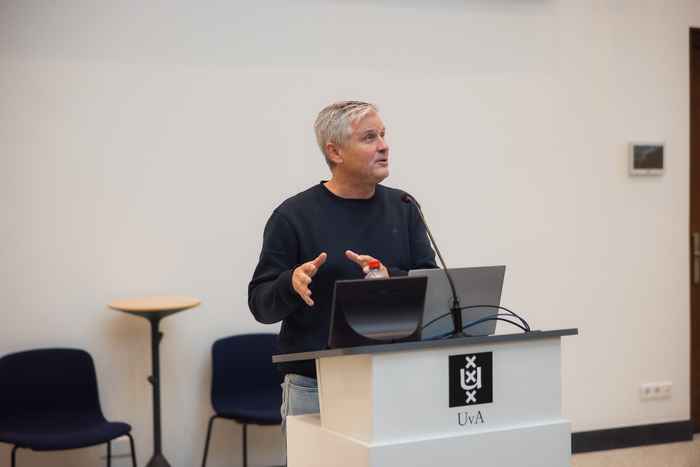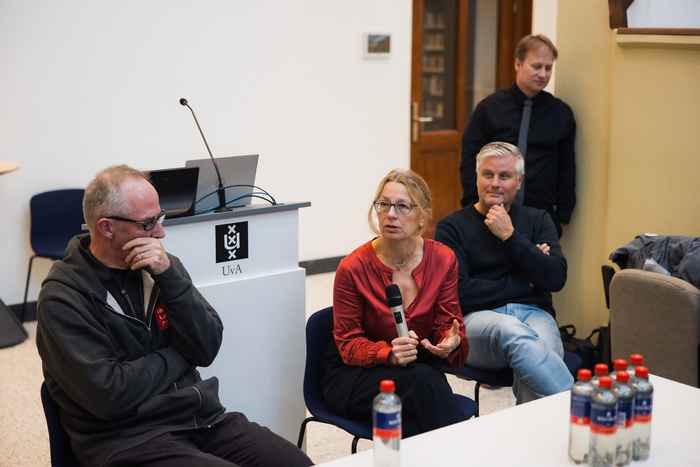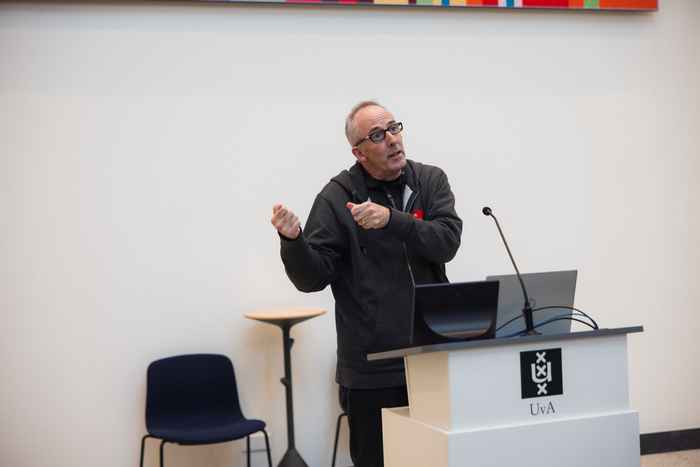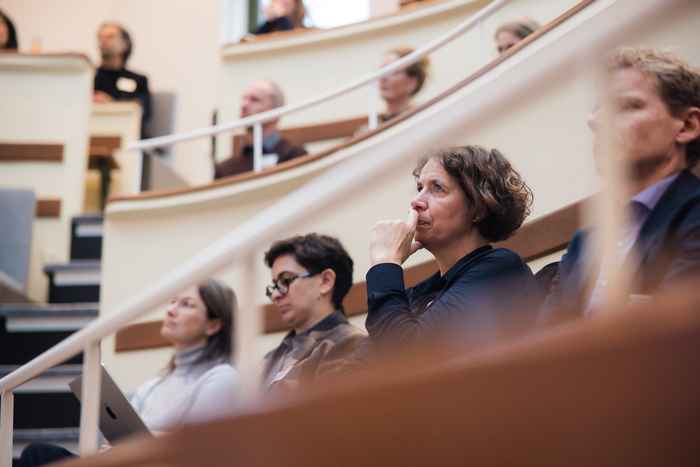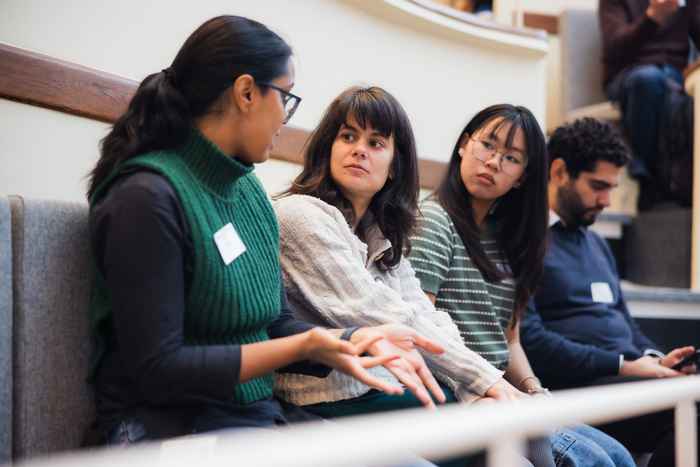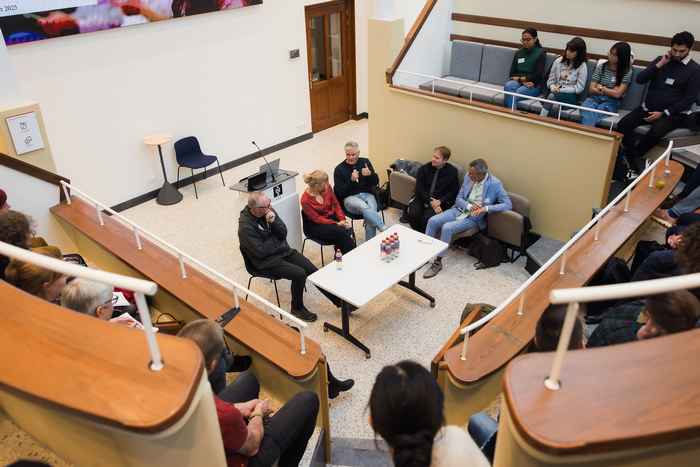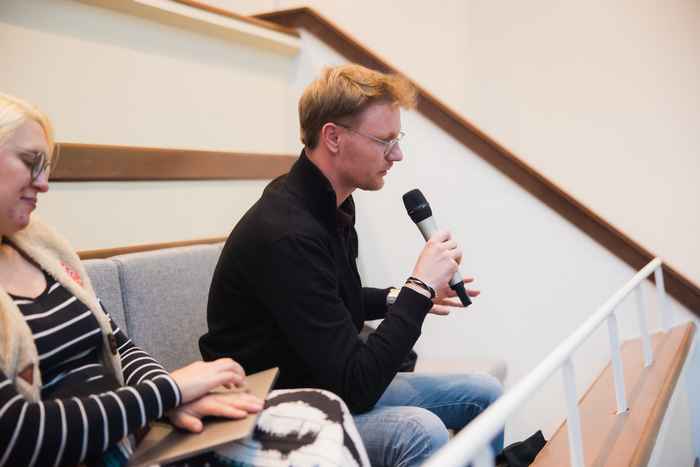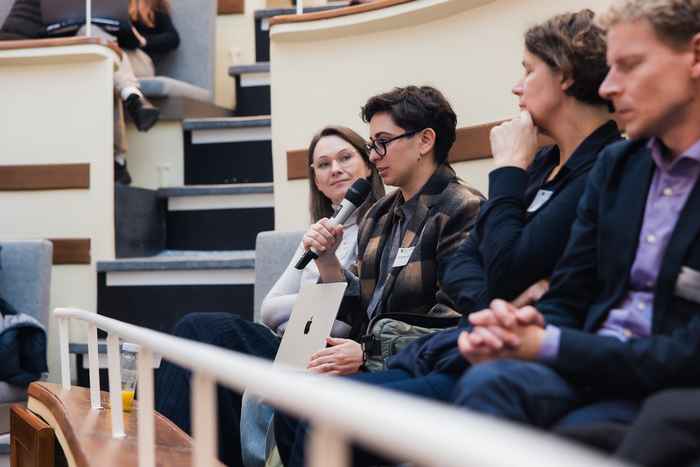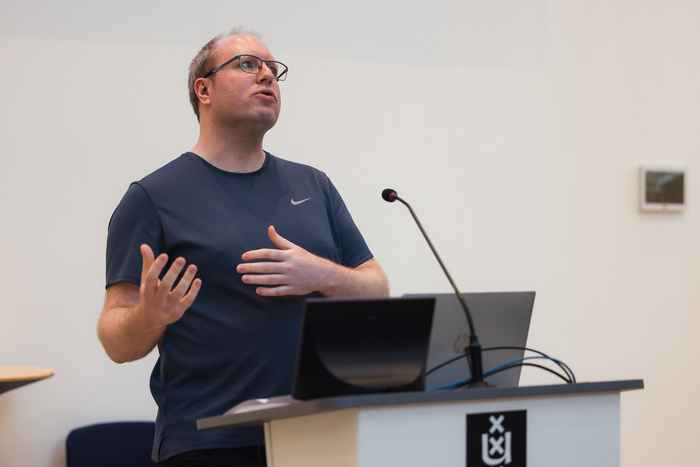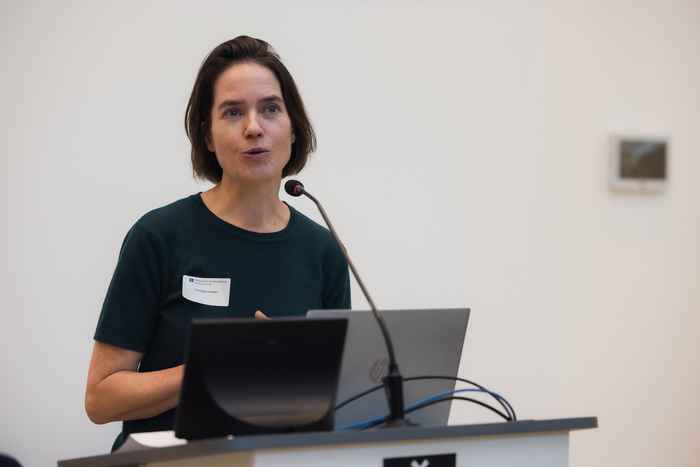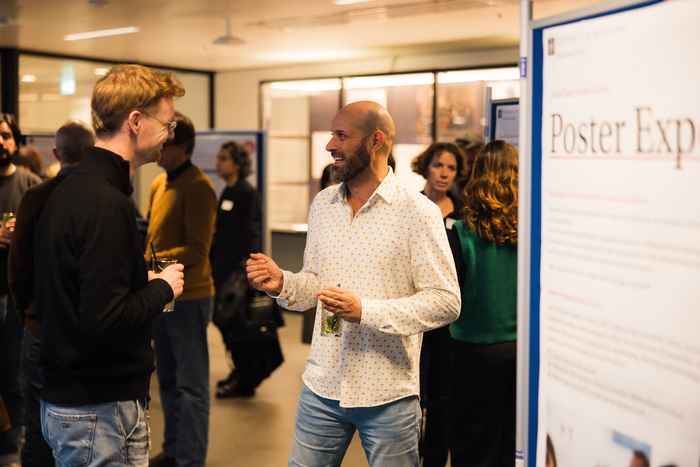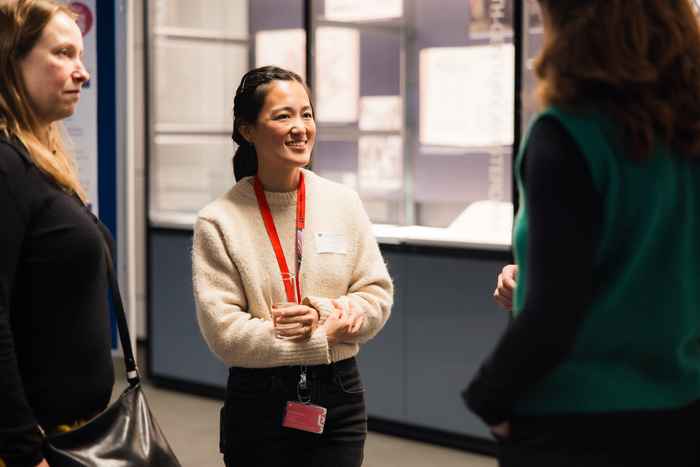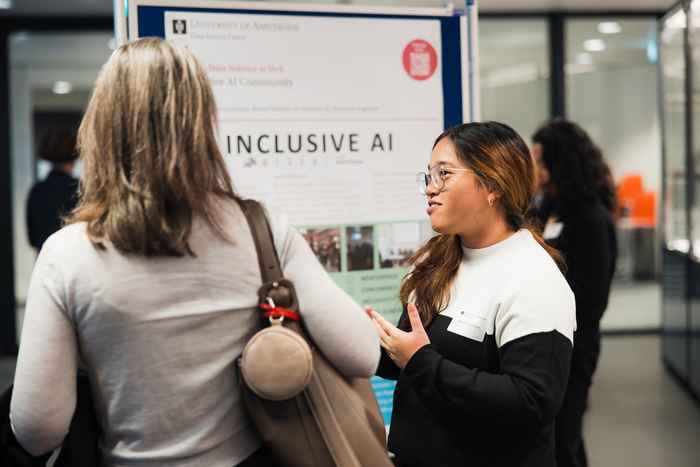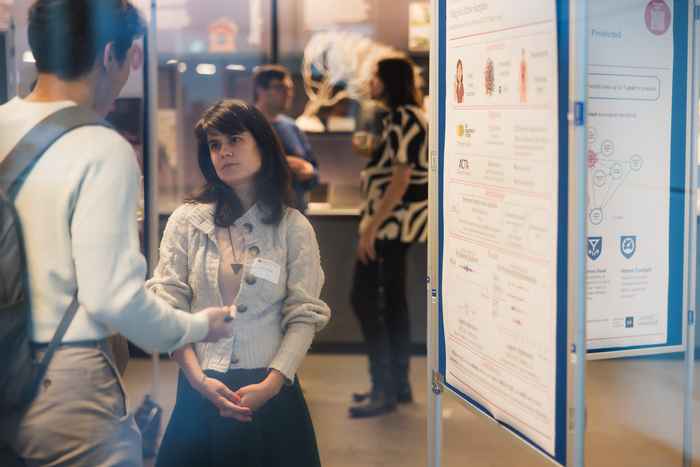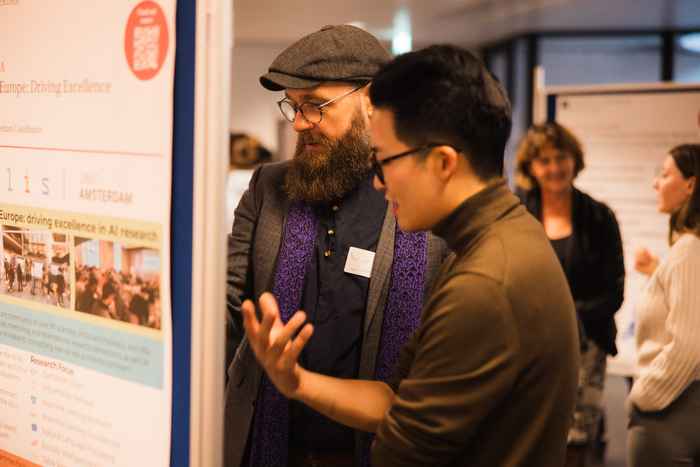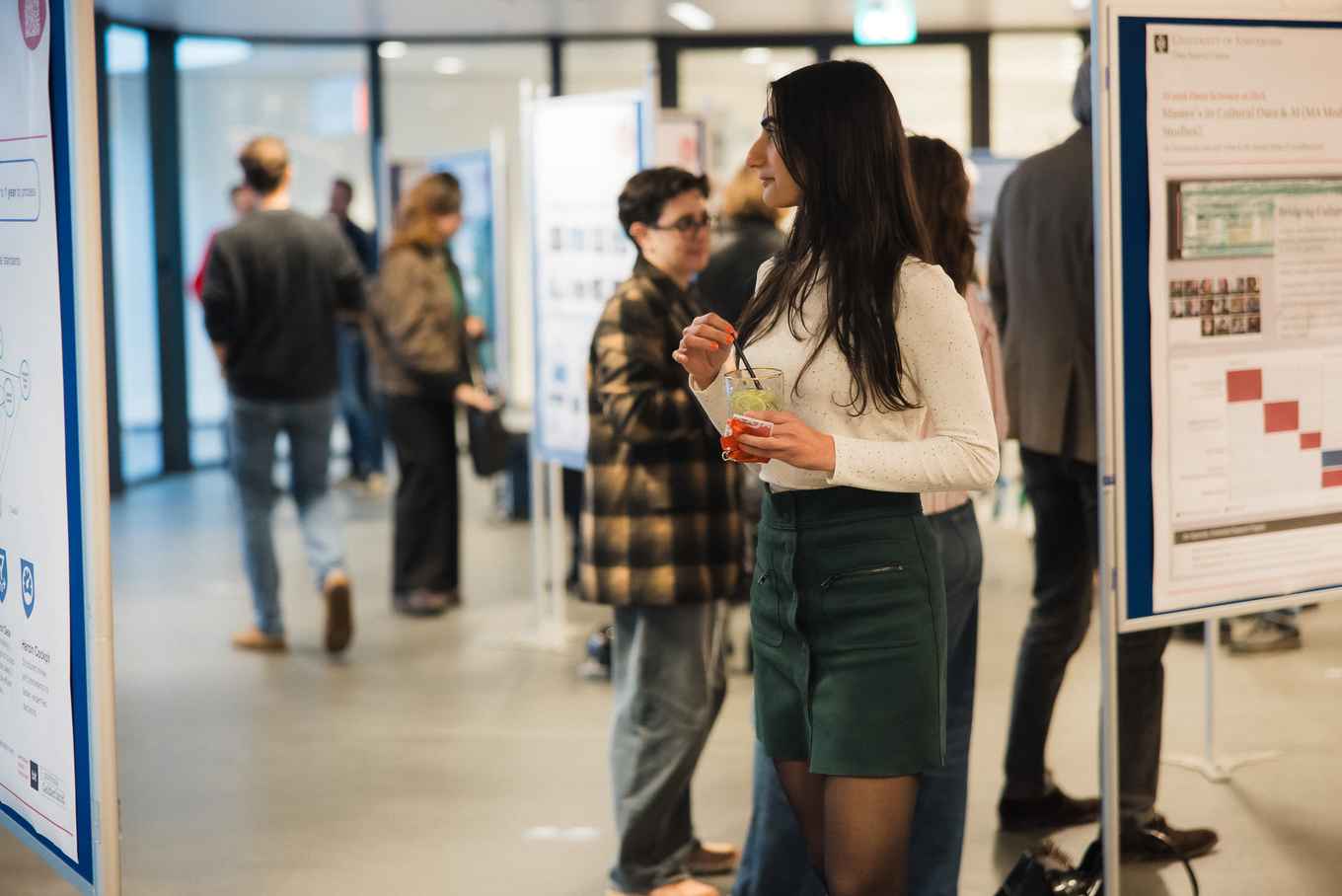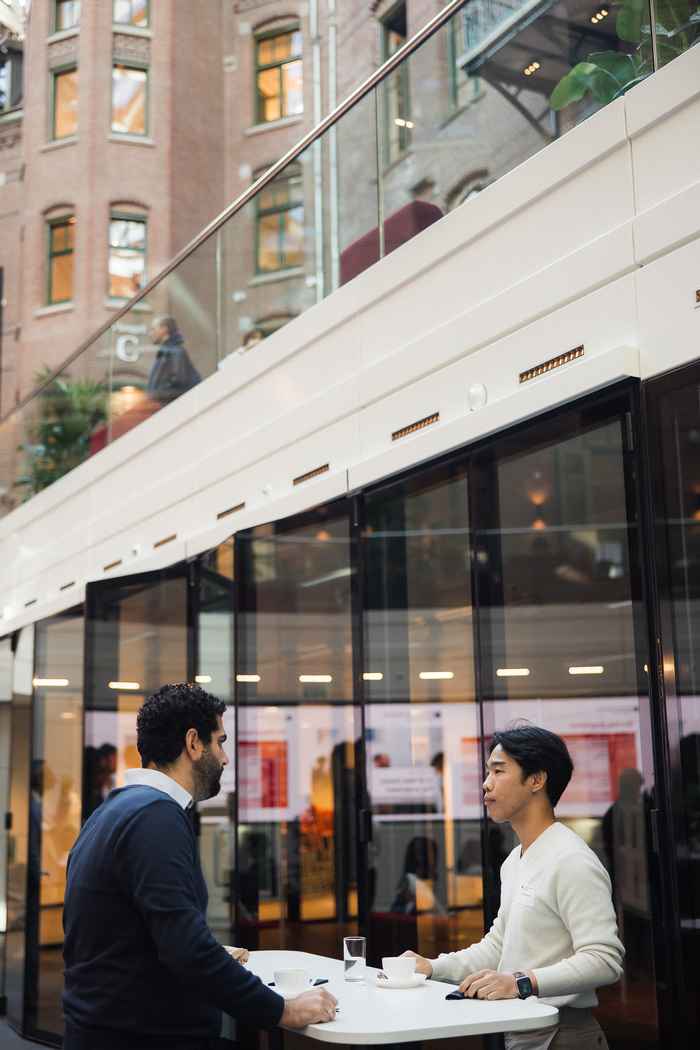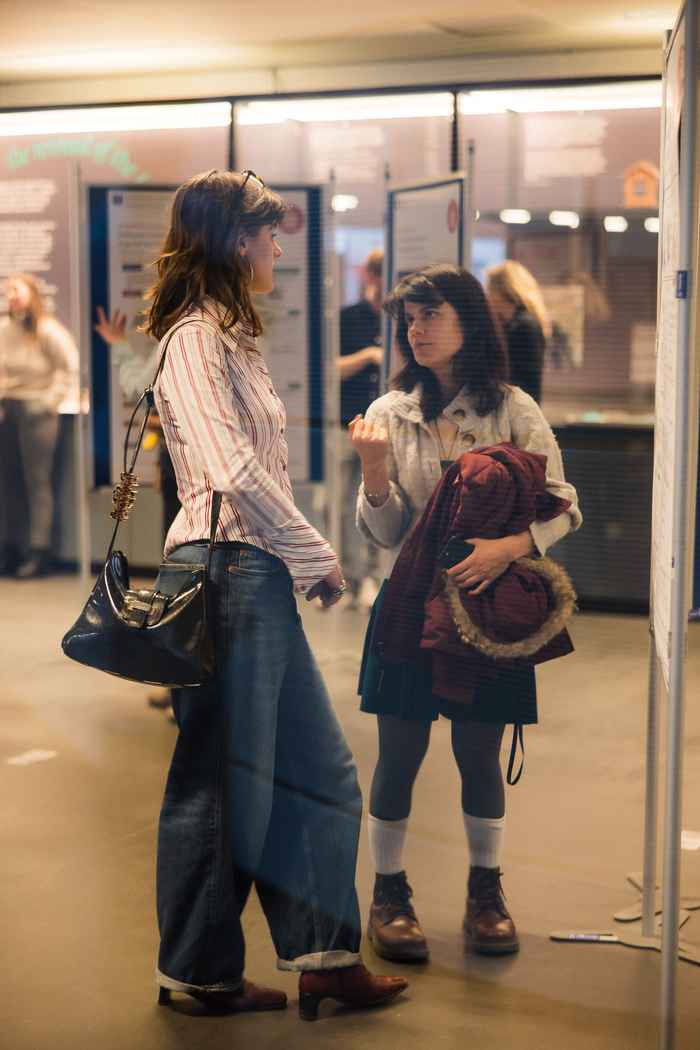AI & Data Science Day 2025: Recap
3 november 2025
The flagship annual event of the UvA Data Science Centre was hosted in the brand-new University Library in Amsterdam. This year’s theme, ‘Data Science and AI as Teamwork’, highlighted how collaboration across disciplines and skills brings together the right ingredients to solve real-world problems and create impact.
Morning programme with workshops
The morning programme featured a workshop on Language and Vision Models: From Image-Language Alignment to Storytelling and Narration by Sandro Pezzelle. In parallel, participants joined another workshop on Generative AI infrastructure at the UvA, led by Rik Jager, Max Paulus and Saurabh Khanna.
The morning programme was followed by a shared lunch where participants continued their conversations.
Joint keynote by UvA’s AI Professors
The afternoon programme opened with a warm welcome by Paul Groth, Director of the UvA Data Science Centre, who reflected on the development of the DSC community and the importance of bringing researchers of different disciplines together.
This was followed by a joint keynote by UvA’s three University Professors in AI: Natali Helberger (Faculty of Law), Claes de Vreese (Faculty of Social and Behavioural Sciences), and Maarten de Rijke (Faculty of Science). Each shared their perspectives on the latest developments in artificial intelligence at the UvA and beyond.
Natali Helberger elaborated on the making of the AI Act. "A story of power, conspiracy and world dominance." She discussed the challenges of regulating emerging technologies such as generative AI. She noted that regulation often ends up as “Work Package 13”, addressed only at the end of innovation projects, whereas, in her view, “it should really be Work Package 1.” At the same time, she emphasised how complex and demanding it is to create effective governance frameworks for technologies that are still rapidly evolving.
Claes de Vreese reflected on the diverse perspectives surrounding the impact of AI on democracy noting that “AI could either save or destroy democracy.” He shared some sobering statistics showing that AI is not yet as pervasive in everyday life as often assumed. in reality, only a limited number of people use it on a daily basis.
De Vreese illustrated his talk with AI-generated images that circulated during the 2025 Dutch election campaigns, highlighting both the potential and the uncertainty of AI’s influence on public opinion. “It is still uncertain how much generative AI tools have been used for voting advice and what their actual impact has been,” he remarked.
Maarten de Rijke offered thought-provoking perspectives on how AI is transforming scientific practice. He reminded the audience that as early as the 1940s, scholars were already anticipating the problem of information overload. According to De Rijke, researchers will need computational support to help evaluate and navigate the growing volume of academic papers. He also reflected on how indexing remains a fundamentally human endeavour, a process still shaped by human effort and judgment. One of the “tech dreams,” he noted, is the development of a model-learned index: a system where a query can be entered, and the model itself determines and delivers the most relevant results.
The session concluded with an engaging audience Q&A, giving participants the opportunity to reflect on AI’s impact across research, education, and society.
First look: UvA’s Research Data Hub
Following the keynote, participants were given a first look at the UvA’s upcoming Research Data Hub (RDH): a new platform being developed by the Library and ICTS to help researchers easily and safely publish, share, and archive their research data.
During the session, Georgette Dekker and Olaf Zwennes from the RDH project team demonstrated how the platform will provide a user-friendly, integrated environment that fits seamlessly into researchers’ workflows and is supported by data stewards and Research Data Management specialists. They highlighted how the Data Hub will make it easier to store and share research data efficiently and securely.
Georgette: "For our project we focus on the hurdles and the administrative overload. That is something where we can help. Because let’s be honest, nobody likes to do the dishes and we all want you to spent as much time as possible doing research."
Poster Expo & Networking Drinks
The day concluded with the Poster Expo and networking drinks, where participants explored the latest research applying AI and data science at the University of Amsterdam. Posters covered a wide range of topics, from fundamental methods to applied projects addressing societal challenges, highlighting how collaboration across disciplines and skills can generate real-world impact.
Posters were presented by the Artificial Intelligence Student Organisation (AISO), ELLIS, ICAI, bioDSC, SoBe DSC, the Amsterdam People Analytics Centre, the UvA Strategic Themes, TTT-AI, the Anton Pannekoek Institute for Astronomy, qurAI Lab, Amsterdam AI, ChemAI, Inclusive AI, Institute for Advanced Study, the MBA in AI, the Data & Analytics programme, the Masters Programme Artificial Intelligence, and Masters Programme Cultural Data and AI, Lab42, the University Library Publishing Team, the Critical Infrastructure Lab, the DSC's HAVA Lab, and the Amsterdam Policy Hackathon category winner.
The expo provided opportunity for attendees to connect with poster presenters and fellow participants, exchange ideas, and continue discussions over drinks and light bites in a relaxed setting.
See you back at AI & Data Science Day 2026!
Photos: Jaap Beyleveld.
Relive the day in video
Want to revisit the action? Check out this video of Data Science Day 2025, produced by Christiaan Kanis, capturing highlights, workshops, and key moments from the day.
